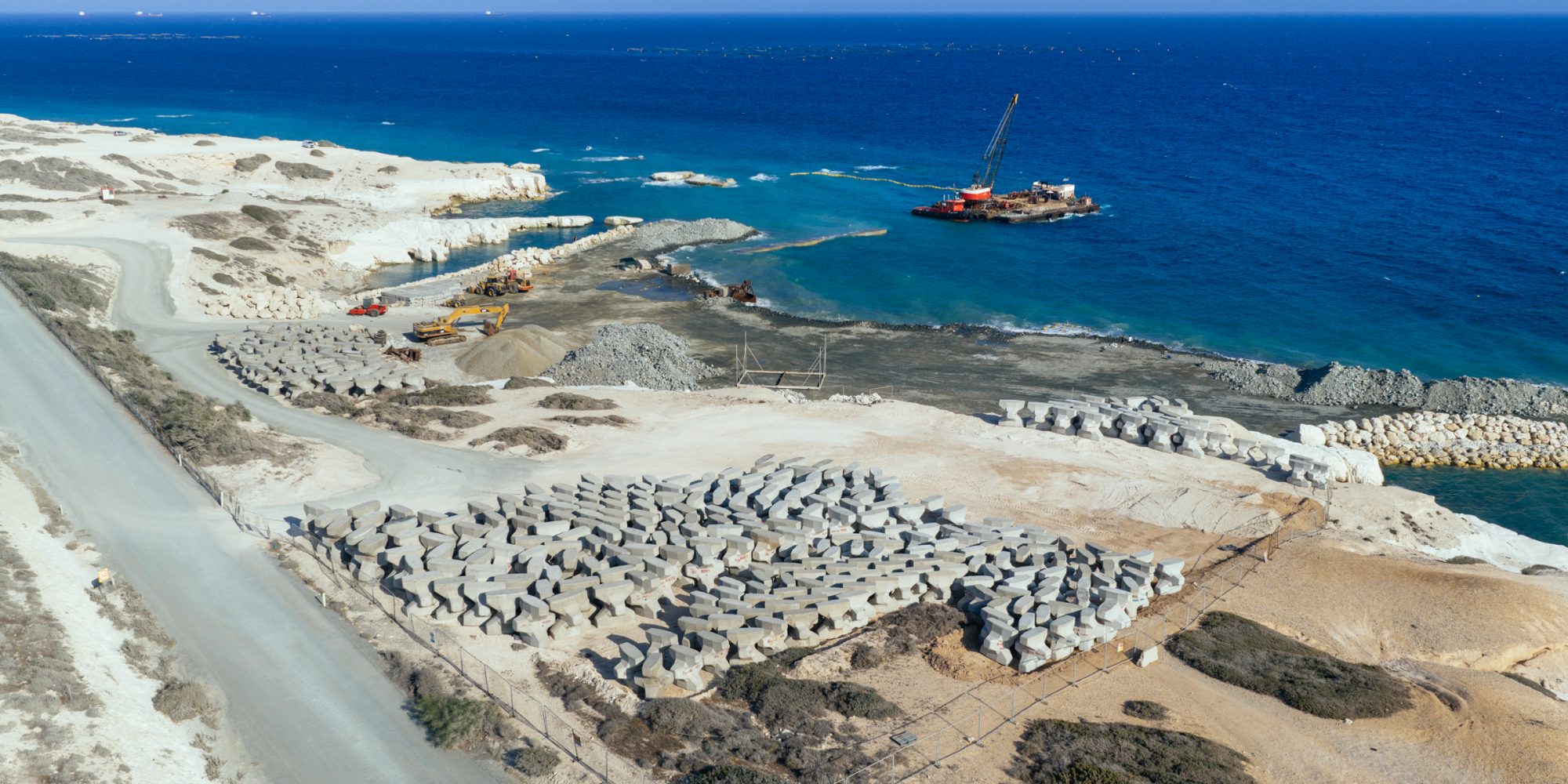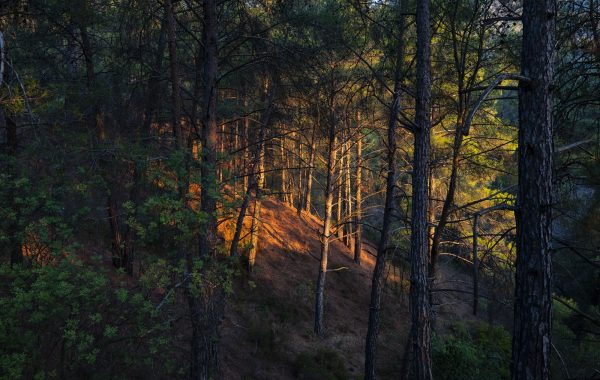In early 2025, construction work began on the Pentakomo coastline for a new port for aquaculture purposes, directly threatening an important coastal habitat, used by the endangered Mediterranean Monk Seal, one of the rarest marine mammals in the world.
Despite lack of an Appropriate Assessment and the publication of scientific evidence of its potentially devastating environmental impacts, the project was granted approval. BirdLife Cyprus and Friends of the Earth Cyprus decided to take the matter to court, filing appeals against both the environmental permit and urban planning approval, seeking an urgent injunction. At the same time, we launched a public awareness-raising and fundraising campaign, to communicate this as widely as possible and ask the public’s support in covering our legal costs.
This legal challenge has become a landmark case for environmental justice in Cyprus. For the first time, a large-scale development project was halted solely on environmental grounds. Below are the main milestones of the battle so far:
8 April 2025: Works suspended
Following our appeals, the Administrative Court issued a historic interim order, halting all construction works on environmental grounds for the first time in Cyprus. BirdLife Cyprus called this a turning point for environmental justice, setting vital legal precedent for nature’s protection and the improvement of environmental assessment of projects.
30 May 2025: Interim order lifted procedurally
Ahead of a court hearing, the contractor company and the representatives of seven aquaculture companies signalled their interest to be involved in the case, claiming that they have a legal right to be heard due to potential financial losses. The Court accepted their right to be involved in the case, which resulted in lifting the interim order on procedural grounds. Construction resumed. However, the case was fast-tracked, acknowledging the urgency due to potential irreversible damage to this unique coastline.
August 2025: Hearing confirmed, construction underway
Despite the resumed works, the Administrative Court set a hearing for 2 September. Meanwhile, our awareness-raising campaign continued to grow, culminating in a powerful video in which the Pentakomo community speaks out against the port. The video reached over 100,000 views, amplifying local voices and showing the widespread public concern for the fate of this unique coastline.
2 September 2025: Court hearing held
At the hearing, our legal team presented strong scientific evidence and highlighted the absence of adequate environmental assessment for the approval of this large scale, industrial use aquaculture harbour. They called out flaws in the government’s assessment and countered attempts to downplay the environmental stakes. The court reserved its decision. The accelerated process signifies that environmental justice can and must operate swiftly.
Next steps
We now await the Court’s ruling, hoping for the best possible outcome. Whatever the outcome, this case has already made history in Cyprus, showing that nature can, and must, have its day in court. Over €13,000 has been raised so far, showing the public’s concern for preserving nature. Our aim is to raise €20,000 to cover the legal fees. You can support our legal battle by donating here: givengain.com/campaign/pentakomo
Why this case matters
The Pentakomo case sets a powerful legal precedent, as it is the first time in Cyprus that a development project has been halted solely on environmental grounds. It exposes serious procedural flaws, with the port approved in the absence of a mandatory Appropriate Assessment, contrary to both national law and the EU Habitats Directive. In fact, the European Commission has an open infringement case against Cyprus for the systematic failure of the Cyprus government to properly assess projects that may have a significant impact on Natura 2000 sites (INFR(2019)2303) – see relevant announcement.
The case also highlights two troubling contradictions. First, the project is partly funded by the EU’s Recovery and Resilience Plan, a mechanism designed to support sustainable development, yet it bypasses the very environmental safeguards that such funding should uphold. Second, the authority responsible for protecting marine habitats and the Mediterranean monk seal, the Department of Fisheries and Marine Research, is the same authority that proposed and promoted the port project in Pentakomo. Above all, the case reinforces the public’s rights under the Aarhus Convention, ensuring access to information, participation in decision-making, and the ability to seek environmental justice through the courts.




